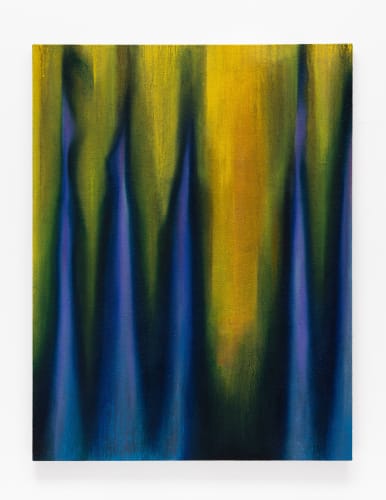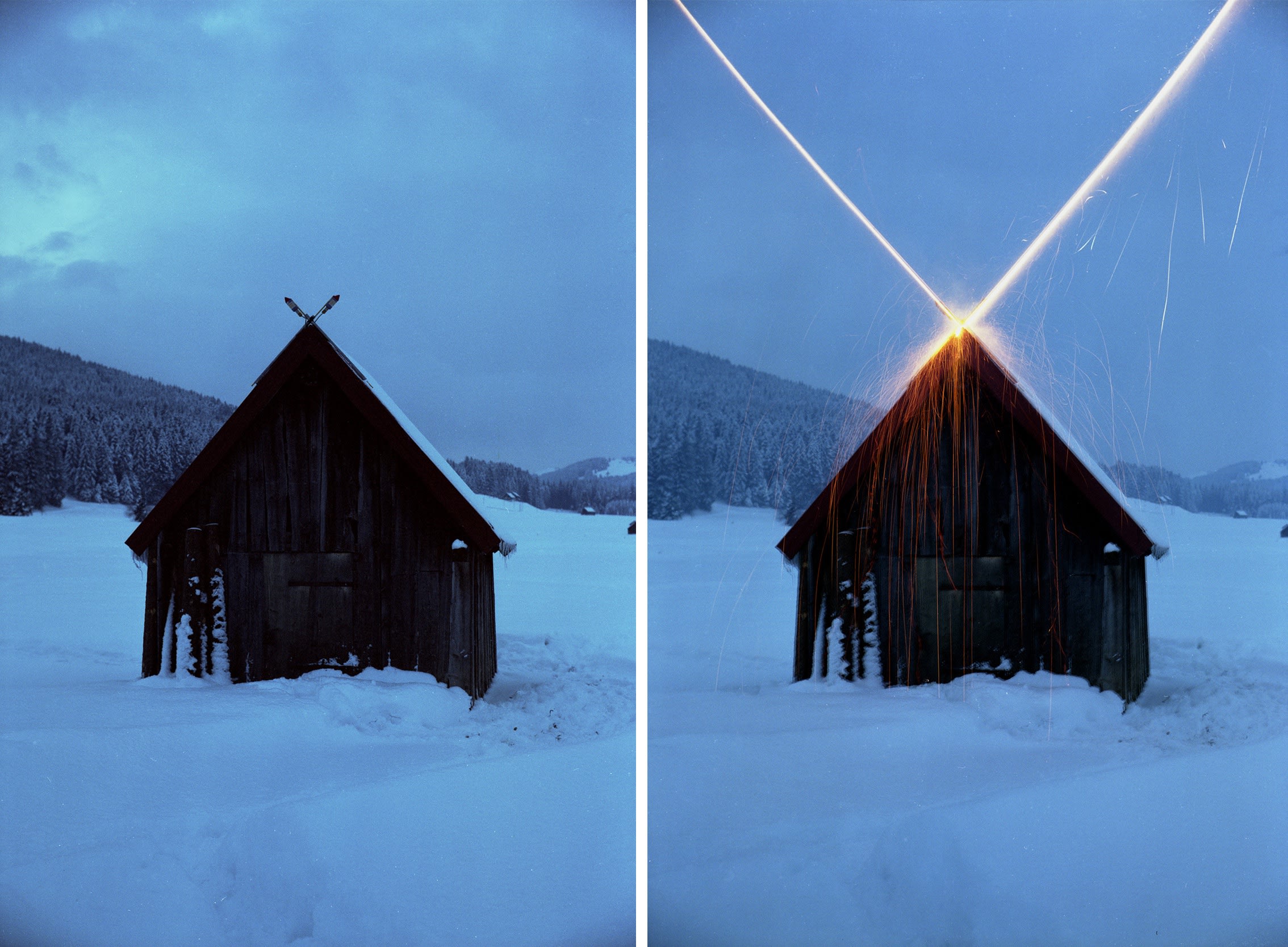"McClelland's frugal working methods and unpolished style may have their roots in the subcultural sensibilities of punk rock, doom metal and skateboarding, while the general aesthetic clearly nods to the history of Minimalism and abstract painting." - Michael Vass, Canadian Art.
Níall McClelland:
The Juice
Opening: Friday, October 27th, 6-10pm
Exhibition: 27 October - 9 December, 2023
"Well ya know for me the action IS the juice."
- Michael Cheritto (Tom Sizemore) in Heat (1995), directed by Michael Mann.
Clint Roenisch is pleased to present an exhibition of new oil paintings by Níall McClelland (b. 1980) at 190 St Helens Avenue in Toronto. Gallery hours are Wednesday through Saturday, noon to five.
On the occasion of McClelland's first show in New York, Michael Vass wrote, "McClelland's frugal working methods and unpolished style may have their roots in the subcultural sensibilities of punk rock, doom metal and skateboarding, while the general aesthetic clearly nods to the history of Minimalism and abstract painting,".
For this new show McClelland is facing the act of painting head-on. In the past he has arrived at painting by more circuitous means, approached it obliquely. His earlier series of Floor Paintings, for example, were made by laying canvasses on the studio floor and painting their backs over several months until they became firmly adhered to the floor. Peeling the canvasses up to reveal their fronts took up fragments of the floor with it, resulting in mottled surfaces that appeared geological and stratified like crumbling frescoes. Murray Whyte noted that "the work is a kind of personalized urban archeology, and McClelland is a willing forager both of esthetics and materials. You can go down a checklist for echoes of the past - Dadaist ready-mades, conceptual, process-based work - but there's an undeniable personal edge that makes the gestures McClelland's own."
Another early nod to painting came with McClelland's Tapestries series, which involved folding and refolding large sheets of black photocopied paper into hard-won patterns and geometries. Across these blackened expanses lay the various white skeins, creases, and abrasions from the folding that, with a roving eye, easily morphed into constellations of stars or flight paths or a grid of streets seen from high above. The impetus to make them came from McClelland's research into paintings and tapestries looted during WWII: the cutting out of paintings from their frames, the hurried folding up of vast tapestries into more manageable sizes. McClelland felt that all these artworks became visually richer and more complex from the violence visited upon them during their theft. Those new folds and creases became so many vivid scars of their chaotic, involuntary excursions into brutality and covetousness.
But these new paintings are something else. They were made by an artist facing the empty canvas directly, brush in hand, guard down, while oil, sand and spirits stood ready nearby. In that sense these paintings are much warmer and more vulnerable seeming than previous works of McClelland's made in mediums more removed, such as silkscreens, found readymades and sculpture (each of which McClelland has persuasively engaged with). Also, tellingly for an artist so often equated with distinctly gritty, urban sensibilities, these paintings were made out of the city, at a cabin on the Bruce Peninsula. Shot through them come intimations of approaching storms and mercurial elements, of changing seasons, of bright mornings full of promise, or fading evening light and the darkening of mood as the days got colder and shorter.
Siri Hustvedt in her Mysteries Of The Rectangle: "Hours may pass but a painting will not gain or lose any part of itself. It has no beginning, no middle, and no end. I love painting because in its immutable stillness it seems to exist outside of time in a way no other art can. A painting creates an illusion of an eternal present, a place where my eyes can rest as if the clock has magically stopped ticking."
Níall McClelland would like to acknowledge funding support from the Ontario Arts Council and the Government of Ontario for their support.


